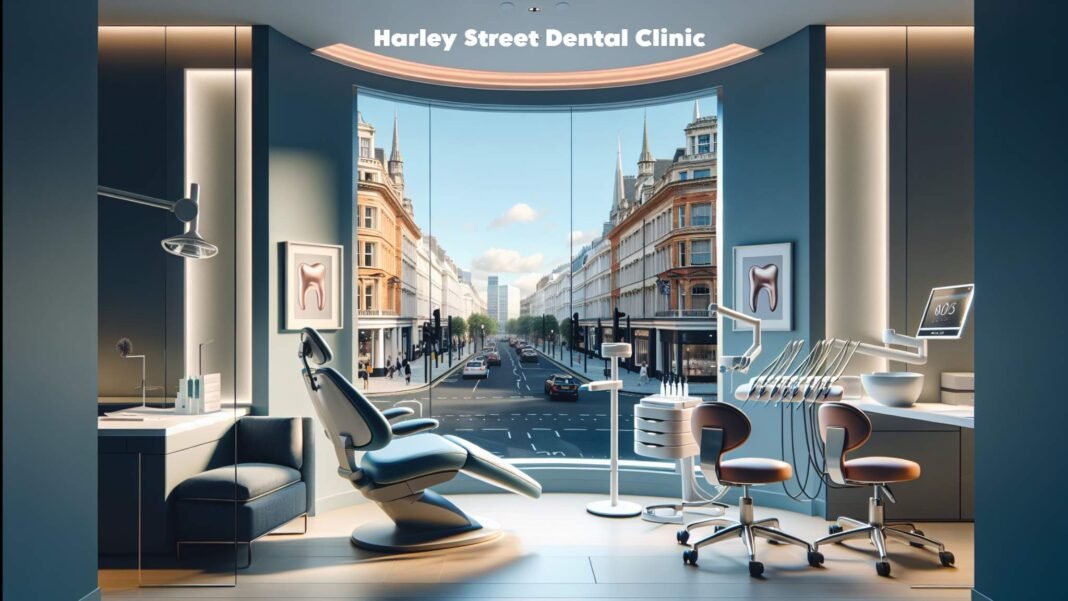Dallas, Texas stands out as a vibrant center for construction companies, with a rich landscape of firms specialized in residential, commercial, and industrial projects. Known for its dynamic economy, Dallas is a magnet for a diverse array of construction activities, offering countless job opportunities and enhancing the city’s infrastructure and living spaces.
In navigating through Dallas’s best construction company in 2024, this article will delve into the distinguished firms leading the industry, their assorted project portfolios, and the innovative construction techniques they employ. It will also explore the significant economic contributions these companies make to the city and the emerging trends shaping the future of construction.
Leading Construction Companies in Dallas
Dallas stands as a beacon of construction innovation and prowess, hosting a multitude of prominent construction companies that significantly contribute to the skyline and infrastructure of the city. Among these, Turner Construction Company and Austin Industries are noteworthy for their extensive projects and employment opportunities. Turner Construction, known for its large-scale projects such as airports and sports facilities, employs over 10,000 individuals and offers comprehensive benefits including medical plans and tuition reimbursement. Austin Industries, specializing in civil, commercial, and industrial construction, not only manages significant projects like airport redevelopments and sports stadiums but also supports its 1,001-5,000 employees with a robust stock ownership plan and matching retirement savings.
In the realm of specialized construction services, companies like CMTS LLC and Bob Moore Construction distinguish themselves through their focused offerings. CMTS LLC, with a workforce of 51-200, excels in project and construction management for high-profile sectors including international airports and higher education facilities, offering a suite of benefits from health plans to retirement savings. Bob Moore Construction, although smaller with 11-50 employees, leverages its niche in designing and constructing facilities with stringent standards, such as food processing plants, providing essential benefits and internship opportunities to nurture new talent.
Diverse Project Portfolios
The construction landscape in Dallas showcases a diverse array of projects, each reflecting the city’s dynamic growth and innovative spirit. Among the standout developments is the DFW Airport Terminal Improvements, which includes a strategic $27.8 million capital expenditure to construct Terminal F and a $4.5 billion Terminal C Pier project, employing cutting-edge technology to enhance the passenger experience. Similarly, the DART Silver Line project, a $1.89 billion commuter rail system, will connect Plano to DFW International Airport, featuring eight stations along a 26-mile route, fostering new transit-oriented developments.
Significant urban redevelopment projects are reshaping Dallas. The Collin Creek Mall Redevelopment transforms into a $1 billion pedestrian-friendly mixed-use area, blending retail, office spaces, and residential units with park areas and trails. Another ambitious project, The Central De La Vega Development, is set to introduce a 20-story residential high-rise and a four-acre park, encompassing 2,000 multifamily residential units. These projects not only cater to the city’s growing population but also enhance its urban fabric with sustainable and community-focused designs.
Commercial and residential developments continue to surge, with the Texas A&M University System advancing a Tier 1 research campus in downtown Fort Worth and the $3 billion project, The Mix, in Frisco, which is designed as a progressive “mixed-experience” community. This project will include 28 acres of mixed-use space, featuring 2 million square feet of office space, 375,000 square feet of retail, and 3 million square feet of residential space, surrounded by a 9-acre park. Such large-scale developments are pivotal in promoting Dallas as a hub for innovation and a desirable place for both living and working.
Innovative Construction Techniques
In the heart of Dallas, the construction sector is embracing cutting-edge technologies to address challenges and enhance efficiency. The DFW Airport Terminal Improvements are a prime example, featuring dynamic glass windows that adapt to sunlight intensity, significantly improving energy efficiency and passenger comfort. Additionally, smart restrooms equipped with IoT sensors ensure cleanliness and reduce maintenance costs, setting a new standard in facility management.
The Fort Worth Convention Center has responded to the growing demand for large-scale events by expanding its capacity with more loading docks. This enhancement not only streamlines logistics operations but also increases the center’s ability to host major events, boosting local economic activity.
Amidst a notable labor shortage, the construction industry in Dallas is increasingly turning to technology. Automation, AI, and robotics are being integrated to not only compensate for the reduced workforce but also to elevate productivity levels. These technologies minimize human error and streamline processes from project inception through completion. For instance, modular construction, which is expected to represent 15-20% of all new construction projects in the U.S. by 2030, exemplifies how prefabrication techniques can drastically cut down on construction time and waste, fostering a more sustainable construction environment.
Economic Impact on Dallas
The Dallas-Fort Worth (DFW) Metroplex has demonstrated remarkable growth in the construction sector, significantly influencing the local economy. In 2023, the region led the United States in construction job growth, adding 14,800 jobs in the construction sector, an 8% increase from the previous year. This growth is not only a testament to the area’s economic vitality but also highlights the ongoing expansion in sectors like healthcare facilities, data centers, and warehouses. The influx of construction jobs has contributed to keeping the state unemployment rate steady at around 4.0%, underscoring the sector’s role in stabilizing local employment levels amidst broader economic fluctuations.
Amidst this expansion, the DFW area has also seen a surge in office and apartment construction, leading the country in both categories. Notably, the office construction market in Dallas is bustling, with 5.21 million square feet under construction as of the fourth quarter of 2023, which is a 34% increase compared to five years earlier. Most of this construction is concentrated on class AA spaces, which are either pre-leased or part of larger, multi-phased developments. This high level of activity, which is the most significant since 2016, indicates a robust demand for premium office spaces, driven by their prime locations and top-tier amenities.
The construction boom has broader implications for the DFW economy, influencing various sectors. For instance, the record delivery of 70 million square feet of industrial space in 2023 has driven vacancy rates to decade highs, affecting market dynamics such as rent and inventory levels. Furthermore, the multifamily sector, despite experiencing a slight decline in rent growth, remains active with a sales volume of $6 billion, although down from previous highs. These trends illustrate the interconnected nature of construction activities and their ripple effects across different areas of the economy, shaping the overall economic landscape of the Dallas-Fort Worth Metroplex.
Future Trends in Construction
The landscape of construction in Dallas is poised for nuanced growth in the coming years. According to the AIA’s Consensus Construction Forecast, nonresidential construction spending is projected to see a modest increase of 2% in 2024. Similarly, FMI anticipates a 2% rise in overall engineering and construction spending by the end of 2024 compared to the previous year. These forecasts suggest a steady, if not explosive, expansion in various construction sectors within Dallas.
Significant growth is anticipated across multiple segments of the construction industry. Notably, sectors such as office buildings, healthcare facilities, educational institutions, and transportation infrastructure are expected to experience growth rates between 10% and 20% in 2023. This upward trend indicates a robust demand for construction services in areas that directly impact the social and economic fabric of the city.
The most dynamic growth in 2023 was observed in sectors including manufacturing, multifamily residential, lodging, and infrastructure related to sewage, waste disposal, and water supply. These segments registered growth rates exceeding 20% from the previous year. This surge underscores a broader trend towards enhancing the urban infrastructure to accommodate Dallas’s growing population and industrial activities, setting a vibrant stage for the city’s future development landscape.
Conclusion
Through this comprehensive exploration of Dallas’s construction landscape in 2024, we have ventured into the heart of the city’s vibrant construction sector, highlighting the substantial economic contributions and innovative trends set by leading construction companies. The significance of these developments cannot be overstated, with extensive projects like the DFW Airport Terminal Improvements and The Mix in Frisco not only reshaping the city’s skyline but also bolstering its economic vitality. These initiatives underscore a pivotal era of growth and modernization within the construction industry, reflecting Dallas’s continuous evolution as a hub for architectural innovation and economic development.
As we look towards the future, the trajectory of Dallas’s construction sector appears both promising and dynamic, marked by a steadfast commitment to innovation, sustainability, and community-centric projects. The implications of these trends extend far beyond the immediate economic gains, promising enhanced livability, environmental sustainability, and infrastructural resilience for the city. Encouraging further research and active engagement in these transformative construction practices will be crucial in navigating the challenges and opportunities that lie ahead, ensuring Dallas remains at the forefront of modern urban development.
FAQs About the Construction Companies in Dallas:
-
What types of construction projects are most common in Dallas?
- Dallas features a diverse range of construction projects, including commercial developments, residential high-rises, and infrastructure upgrades like airport terminals and rail systems. The city is also seeing significant activity in mixed-use developments that combine residential, retail, and office spaces.
-
Which construction company is considered the leader in Dallas?
- Turner Construction Company and Austin Industries are among the leaders in Dallas’s construction sector. Turner is noted for its large-scale projects such as airports and sports facilities, while Austin Industries specializes in civil, commercial, and industrial construction.
-
How is the Dallas construction sector addressing labor shortages?
- The construction industry in Dallas is increasingly relying on technology, such as automation, AI, and robotics, to compensate for labor shortages. These technologies help increase productivity and reduce the reliance on a large workforce.
-
What are some emerging trends in Dallas’s construction industry for 2024?
- Key trends include the adoption of sustainable construction practices, the use of advanced technologies like IoT and smart systems in building management, and a focus on modular construction to decrease build times and waste.
-
How does construction impact the economy of Dallas?
- The construction industry significantly boosts the Dallas economy by creating jobs, stimulating growth in related sectors, and developing infrastructure that supports other industries. In 2023, the construction sector in Dallas-Fort Worth led the U.S. in construction job growth, adding thousands of jobs and maintaining a stable unemployment rate around the area.


